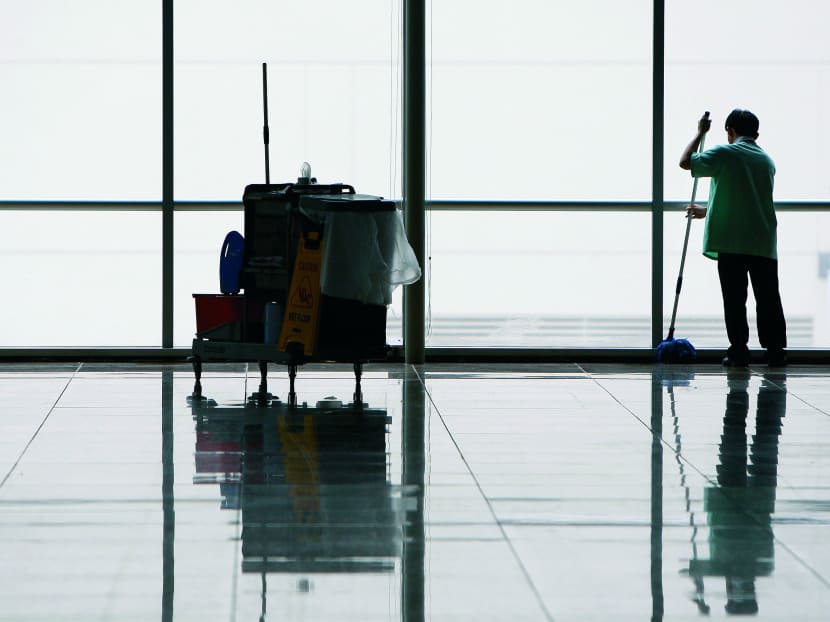NWC suggests S$50-S$65 hike for workers on lower incomes
SINGAPORE — Against the backdrop of a bleak economic outlook, the National Wages Council (NWC) has for the first time recommended a range of wage increments for low-income earners instead of a single sum, to “accommodate the performance of companies” and provide flexibility for employers.

Photo: Reuters
SINGAPORE — Against the backdrop of a bleak economic outlook, the National Wages Council (NWC) has for the first time recommended a range of wage increments for low-income earners instead of a single sum, to “accommodate the performance of companies” and provide flexibility for employers.
The recommended increments — which range from S$50 to S$65 for workers earning up to S$1,100 a month — come as the proportion of employers who matched the council’s recommendations took a dive last year.
Just 18 per cent of employers who pledged to give some form of wage increases matched last year’s recommendation of at least S$60, compared to about 30 per cent in 2014, as the council raised its wage threshold by S$100 to S$1,100 last year.
Announcing the council’s recommendations on Tuesday (May 31), which kicks in from July, NWC chairman Peter Seah said giving a range of quantums would provide “flexibility”. At the same time, the call for employers to “give more when they can afford it” remains.
As for those earning just above the S$1,100 wage threshold, the NWC recommended that employers grant an “equitable and reasonable” wage increase or a one-off lump sum “based on skills and productivity”, with Mr Seah noting that this group also needs support.
Singapore’s economy is expected to grow between 1 and 3 per cent this year, and lay-offs could rise in sectors like manufacturing. Labour productivity was also still stuck in negative territory of -0.1 per cent last year, noted the NWC.
The council also called on employers to invest in the skills of low-wage workers through the help of schemes like the labour movement’s Inclusive Growth Programme — where companies share productivity gains with workers — and reminded companies retrenching workers to do so in a fair and responsible manner.
The council, set up in 1972, acknowledged that adoption rates of wage guidelines have fallen over the years. In 2014, about six in 10 of private companies with workers earning up to S$1,000 had given or decided to give wage increase to these employees. Of these, three in 10 adopted the NWC’s recommendations of built-in wage increase of least S$60.
But as of December last year, only 46 per cent of private companies said they gave or intended to give some form of wage increase to workers earning up to S$1,100. Out of this, just 18 per cent gave increments equal to or more than NWC’s recommendations of S$60.
The situation is slightly better among unionised companies. Figures showed that about half of their unionised firms adopted the NWC’s wage guidelines last year.
Said Mr Seah, who is also chairman of DBS Holdings: “Adoption rates have fallen partly because there are fewer workers earning below S$1,100 (and) partly because of more challenging business conditions.”
According to the Ministry of Manpower (MOM), the pool of workers earning up to S$1,100 every month has shrunk from 8.2 per cent (130,100) in 2014 to 6.9 per cent (112,900) last year.
Speaking at the media conference, the labour movement expressed concern for the group of workers who earn just over the S$1,100 monthly wage threshold, such as those who earning up to S$1,500 per month.
While the MOM did not share figures on the size of this group, National Trades Union Congress (NTUC) assistant secretary-general Cham Hui Fong said their numbers are larger and the labour movement will pay closer attention to them. She added that the NTUC will push for wage increment for these workers, while being mindful of not eroding a firm’s competitiveness.
Asked why the NWC did not raise the wage threshold for its quantitative wage recommendations, MOM Permanent Secretary Aubeck Kam said they are closely monitoring the situation but did not feel that the conditions warrant an adjustment this year. Last year, the threshold was raised from S$1,000 to S$1,100.
Overall, the NWC recommended “sustainable and fair” wage increases, taking into account current business conditions and company performance. The council also said firms who face uncertain prospects may exercise wage restraint, with its management leading by example.
Noting that many workers earning up to S$1,100 are employed in outsourced work, the council recommended that service buyers and providers take into account performance and experience when employment contracts are offered or renewed.
Asked whether the NWC would continue to issue wage guidelines even as adoption rates fell, Mr Seah noted “there is a social dimension” to this — to make sure that low-wage workers are not left behind as the economy progresses.
The focus this year is to reach out to more companies to drive up implementation rate, further reducing the pool of low-wage workers.
The Government accepted the NWC’s recommendations on Tuesday.






